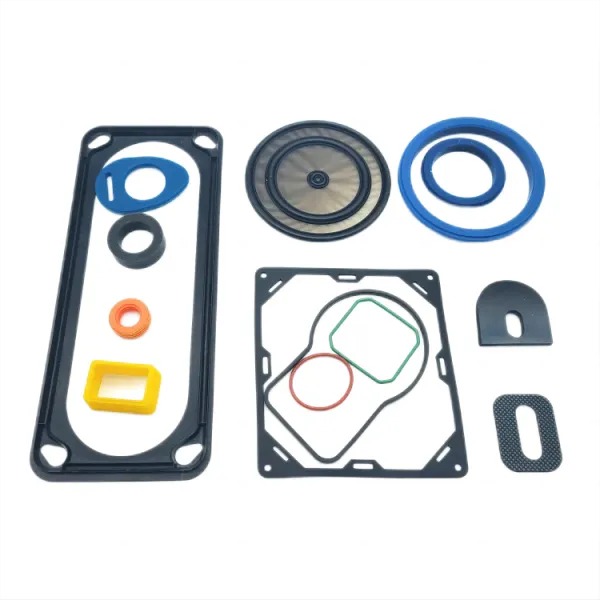Silicone gaskets play a critical role in various industries, offering excellent sealing performance in extreme environments. Custom silicone gaskets are engineered to meet specific application needs, making them ideal for a wide range of mechanical and industrial uses.
What Are Silicone Gaskets?
Silicone gaskets are sealing components made from silicone rubber. They provide a tight seal between two surfaces to prevent the leakage of liquids or gases. Known for their flexibility, durability, and temperature resistance, silicone gaskets are widely used in automotive, medical, food processing, and electronics industries.
Benefits of Custom Silicone Gaskets
Custom silicone gaskets offer tailored solutions for unique challenges. Some key advantages include:
- Precise Fit: Engineered to exact dimensions for perfect sealing.
- Enhanced Performance: Designed for specific pressure, temperature, and chemical environments.
- Material Flexibility: Choice of hardness, thickness, and durometer ratings.
- Reduced Waste: Less material waste compared to trimming or modifying off-the-shelf gaskets.
Silicone Gasket Material Properties
Silicone rubber has unique properties that make it ideal for demanding applications:
- Temperature Resistance: Performs in a wide range from -100°C to 250°C.
- UV and Ozone Resistance: Ideal for outdoor and high-exposure applications.
- Flexibility: Maintains elasticity in extreme conditions.
- Biocompatibility: Safe for medical and food-grade uses.
Applications of Custom Silicone Gaskets
Custom silicone gaskets are used in a variety of industries, including:
Automotive
They are essential in sealing engines, transmissions, and climate control systems. Their resistance to oil, heat, and vibration makes them ideal for vehicle components.
Medical Devices
Due to their inert and non-reactive nature, silicone gaskets are used in medical equipment, diagnostics devices, and implants.
Food and Beverage Industry
Food-grade silicone gaskets ensure hygienic sealing in food processing machines, ovens, and beverage dispensers.
Electronics
Silicone gaskets protect electronic enclosures from moisture, dust, and environmental stress.
Types of Custom Silicone Gaskets
Different configurations of silicone gaskets are available depending on the need:
Die-Cut Silicone Gaskets
Manufactured using precision cutting tools, these gaskets offer tight dimensional control and are perfect for high-volume production.
Molded Silicone Gaskets
These are formed in a mold to create complex shapes and high-strength components. Best for thick or three-dimensional seals.
Extruded Silicone Gaskets
Created by pushing silicone through a die to form long, continuous shapes. Ideal for seals around doors, panels, and enclosures.
How to Choose the Right Silicone Gasket
Selecting the correct gasket involves evaluating several criteria:
- Temperature Range: Will it be exposed to freezing or high-heat environments?
- Chemical Exposure: Will it encounter oils, fuels, acids, or solvents?
- Compression Set Resistance: Will it retain its shape over time under pressure?
- Color and Transparency: Does the application require visual inspection or specific aesthetics?
FDA-Approved and Medical-Grade Silicone Gaskets
For industries with strict safety standards, FDA-approved silicone gaskets offer peace of mind. These gaskets are manufactured using materials compliant with FDA 21 CFR 177.2600, ensuring they are safe for food contact. Medical-grade versions meet ISO 10993 standards for biocompatibility and are used in critical life-supporting devices.
Customization Options for Silicone Gaskets
Custom gaskets can be tailored in many ways:
- Shape and Size: From standard O-rings to irregular, complex geometries.
- Color Matching: Available in custom colors for branding or identification.
- Durometer Rating: Hardness can be customized from 10 to 80 Shore A.
- Surface Finish: Smooth, textured, or adhesive-backed surfaces.
- Special Additives: Flame retardant, anti-microbial, or electrically conductive formulations.
Manufacturing Techniques for Silicone Gaskets
Production methods vary depending on the design and application:
Compression Molding
Best for thick, simple parts. Material is placed in a heated mold and compressed into shape.
Injection Molding
Used for high-precision, complex components. Material is injected into a mold cavity under pressure.
Die Cutting
Ideal for flat, thin gaskets in large quantities. Offers tight tolerances and low tooling costs.
Waterjet and Laser Cutting
Used for intricate designs and rapid prototyping without the need for tooling.
Where to Buy Custom Silicone Gaskets
Work with reputable manufacturers that offer:
- Custom CAD design and prototyping
- FDA, UL, and ISO certification
- Quick lead times and low minimum order quantities
- Engineering support for material and design selection
Online providers also allow easy specification uploads and instant quoting for prototyping or production runs.
Conclusion
Custom silicone gaskets are a vital solution for sealing challenges across industries. Their ability to withstand extreme temperatures, resist environmental exposure, and comply with safety standards makes them an ideal choice for critical applications. By customizing the shape, hardness, and material properties, businesses can achieve better reliability, performance, and efficiency in their equipment and processes.


